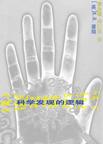科学发现的逻辑
出版时间:1999 出版社:沈阳出版社 作者:(英)波珀 译者:查汝强,邱仁宗
Tag标签:无
作者简介
K·R·波珀,英国自然科学和社会科学哲学家,批判理性主义的创始人。波珀于 1902 年 7 月 28 日出生于奥地利维也纳一个犹太血统的知识分子家庭。1933 年维也纳学派的《科学世界观丛书》发表了他的处女作《研究的逻辑》。1945 年,他定居英国,后加入英国籍。1964 年,他受封为爵士。他是英国皇家学会成员和英国科学院成员。主要著作有:《开放社会及其敌人》(1945)、《历史决定论的贫困》(1957)、《科学发现的逻辑》(1959)、《猜测与反驳:科学知识的增长》(1963)、《客观——一个进化论的观点》(1972)、《自我极其大脑》(与约翰·艾克尔爵士合著,1978)等。
图书封面
图书标签Tags
无
评论、评分、阅读与下载
用户评论 (总计2条)
- Popper's work (in general) and this book (in particular) have been much admired by non-philosophers who wanted to have something simple and solid to rely on: and much despised and assaulted by other philosophers of science who liked to have something large and static to react against.
Needless to say, in a more balanced view, the truth is probably neither that Popper is a complete fool, nor that he is a completely reliable guide to how science is or should be done.
Perhaps the place to start is with a naive hypothetico-deductive view of science: scientists boldly propose hypotheses (theories of how some part of the world is), carry out objective experiments which reveal new and definite facts, and deduce from these observed facts either that the theories were correct, or changes to those theories. This seems to be not far from what many intelligent scientists think they are doing; but a philosopher can demolish this scheme in a minute. Experiments are never purely objective -- people have a vested interest in showing they are right and have publishable results. Facts are never certain -- the instruments may be faulty, the sample contaminated, the environmental conditions uncontrolled, etc. Facts do not themselves suggest specific changes to theories; nor is it possible to apply Aristotelian logic (as Stephen Toulmin shows) to deduce theories from facts.
Given that scientists would like something similar to a hypothetico-deductive model, what else could they have? Popper suggested that while, indeed, you couldn't have your theories proven by experimental test, you could have them refuted. Science then never actually arrived at certain theoretical knowledge: but it approximated to it, as you gradually found theories that were harder and harder to disprove. This too is pretty simplistic, retaining the appeal of definite experimental facts and objective experiments (ideas already critiqued above) to ordinary scientists, while escaping the obvious nonsense about 'confirming' theories by experiment. One problem is Thomas Kuhn's historical observation that inconvenient new facts hardly ever cause theories to collapse: theorists are quite accustomed to difficulties, and usually just tweak their theories to account for the new observations.
Popper is however more cunning than this brief sketch would imply: this book consists of some 250 pages of close argument, supported by detailed appendices. Popper continues to maintain that the quantity of testing that a theory has survived somehow establishes a 'degree of corroboration', something that seems to smuggle back in at least a whiff of the old hypothetico-deductive feeling that you can prove a scientific theory. The 'anarchist' philosophers of science like Paul Feyerabend say openly that that is simply nostalgic nonsense: the world just doesn't contain any such certainties. Indeed, the Logical Positivist view that real and definite observable facts exist objectively comes under fire - what you observe depends on what you know, so when you go birdwatching with an expert observer, you (surprise surprise) see a whole lot more than usual. On the other side, scientists who should know better, like Sir Hermann Bondi, feel able to write
"This splendid book ... Popper speaks as a working scientist to the working scientist in a language that time and again comes straight out of one's heart ... Popper faces on every turn the problems against which the scientist runs up, and solves them ... in full accordance with the procedure of science." (from the cover blurb)
Popper is of course not a working scientist at all, and speaking the language of the heart is an odd attribute for a serious philosopher; but there is no mistaking the warmth that scientists feel for his writings. People do feel that there must be truth out there, which is why cultural relativism as in the history-based philosophy of Thomas Kuhn's Structure of Scientific Revolutions (not to mention Feyerabend's scornful rejection of certainty) makes people uncomfortable, however amused they are by Kuhn's tales of subjective goings-on in the laboratory.
Popper, then, is the plain man's philosopher of science -- which, after all, means 'knowledge'. How do we know things? Indeed, can we? Popper resoundingly replies YES, and that is what many people want to hear. But is it true? That, of course, is another matter.
© Ian Alexander, 2004 - 支持下
--------------------------------------------------------
www.91mh.cc/comic/12834/ 斗破苍穹漫画
